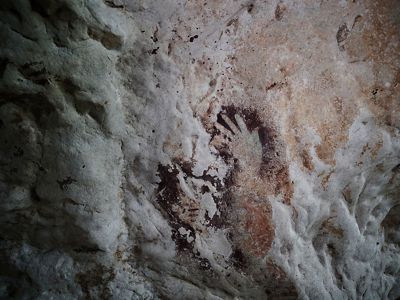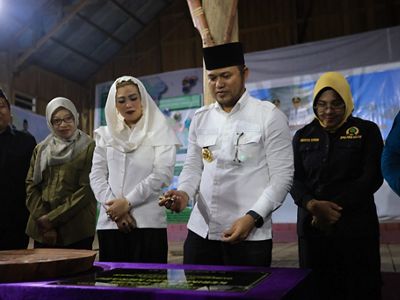
Media Contacts
-
Retno Sari
Content and Publication Specialist YKAN
Yayasan Konservasi Alam Nusantara
Email: retno.dianingsari@ykan.or.id
East Kalimantan will have its first geopark in the province. This is in line with the 2024 Decree of the Minister of Energy and Mineral Resources (ESDM), which designates 26 areas in East Kalimantan as geological heritage sites (geosites).
These 26 areas form the largest karst ecosystem in Kalimantan, spanning about 1,867,676 hectares. The Sangkulirang-Mangkalihat karst area covers Berau Regency (15 geosites) and East Kutai Regency (11 geosites).


“This geopark is a tourism opportunity that brings pride to East Kalimantan and Indonesia. We must preserve its natural features collectively to benefit the people,” said East Kalimantan Governor Rudy Mas’ud during a working visit to Merabu Village on 6 September 2025. He was joined by DPR member Sarifah Suraidah and several Regional Apparatus Organizations. The visit included the Sangkulirang-Mangkalihat Geopark Declaration at the Merabu Village Traditional Hall.
Merabu is a settlement of the Dayak Lebo community located in Kelay District, Berau Regency. The village is home to two geological heritage sites: Beloyot Cave and the Merabu Karst Cone.
Governor Rudy explained that, following the designation as a geological heritage site, comprehensive preparation is needed to meet the requirements for national-scale geopark submission. Stakeholders from Berau Regency and East Kutai Regency must have an understanding, awareness, and play a key role in the development of this geopark.
Merabu Village Head Asrani stated that the governor’s visit marked progress in the geopark designation process. “This is historic; it’s the first time our village has been visited by the governor. With this declaration, we hope for support for the geopark,” he said.
Asrani added that future collaborations could highlight the positive aspects of Merabu Village and its geological heritage sites. The village’s forest, covering 8,245 hectares, is home to hundreds of unexplored caves, alongside Dayak Lebo cultural heritage, and tourist destinations such as Nyadeng Lake and Ketepu Peak. From Ketepu Peak, one can view the landscape of Merabu karst cones.
Towards Global Recognition
Since 2019, the East Kalimantan Provincial Government, together with Berau and East Kutai regencies, and supported by Yayasan Konservasi Alam Nusantara (YKAN), has been working to propose Karst Sangkulirang-Mangkalihat as a geopark. Parties involved have been conducting geological diversity inventories and other activities annually, culminating in the 2024 Minister of ESDM’s decree on geological heritage sites.

Previously, in 2016, the area was proposed as a candidate site for the UNESCO Global Geopark. Currently, 12 areas across Indonesia are officially recognized as Global Geoparks by UNESCO, with the closest to East Kalimantan being the Meratus Geopark in South Kalimantan.
YKAN Senior Manager Niel Makinuddin highlighted the significant implications of acquiring Geopark status, including cultural recognition, conservation of karst areas, tourism development, and research opportunities. Niel further explained that Bappenas states that the designation of Geopark status addresses or fulfills 11 to 14 of the 17 Sustainable Development Goals (SDGs).
Niel hopes the governor’s presence in Merabu Village will strengthen the geopark proposal process and the management institution of the Sangkulirang-Mangkalihat Geopark, while mobilizing support and collaboration among various stakeholders. “Once it becomes a National Geopark and meets international standards, we can propose this area as a UNESCO Global Geopark,” Niel concluded.
Yayasan Konservasi Alam Nusantara (YKAN) is a scientific-based non-profit organization that has been present in Indonesia since 2014. With the mission of protecting lands and waters as life support systems, we provide innovative solutions to realize the harmony of nature and humans through effective natural resource management, prioritizing a non-confrontational approach, and building a network of partnerships with all stakeholders for a sustainable Indonesia. For more information, visit ykan.or.id.

